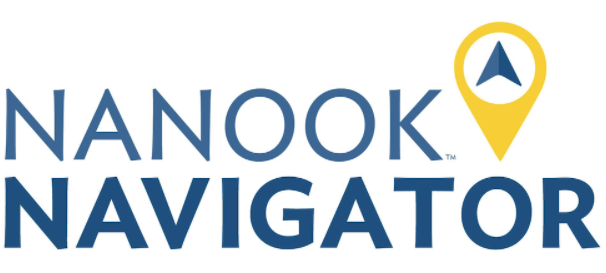
Send feedback to advisors about students with barriers

Instructors can feel isolated in their efforts to support students and their success throughout the semester. This is especially true when they have multiple students who are not responding to their outreach about concerns like low engagement, not attending class, failing to submit assignments, not logging into Canvas/ Blackboard, or are in danger of failing the course. By establishing partnerships, we can re-engage our students through meaningful intervention to help them achieve positive wellbeing and persistence (Cox & Naylor, 2018; Hudley, 2021; Lawrence, Brown, Redmond & Basson, 2019; Sales Force, 2021). With the spring 2022 student withdrawal deadline approaching fast (March 25), who can instructors turn to for assistance in their outreach efforts? Advisors and student support staff!
Instructors have access to their current course rosters and an efficient way to send advisors and staff their concerns about students through Nanook Navigator. Nanook Navigator is a collaborative program that brings together instructors, advisors, staff, and administrators to support students from enrollment to graduation and their life-long success. This program integrates advising, early intervention, and success initiatives into the student experience.
In an effort to break down siloed student outreach and support the UAF Student Success team encourages instructors to submit ad-hoc alerts through Nanook Navigator (log-in link) professor home role. Ad-hoc alerts will trigger a detailed email to the student and create a case for the student’s success team. Assigned case owners will reach out to the student multiple times within two weeks to provide support based on the instructors’ concerns.
The Nanook Navigator Advantage: Since more than one instructor may have concerns for the same student, communicating using Nanook Navigator consolidates this information in one place. Additionally, advisors are using the feedback collected to navigate their conversations and appointments with students to best understand and foster their needs.
Tips for Instructors:
- Outreach to students through texting or email and encourage them to meet with you
- Issue an alert for students who are displaying barriers or concerns at least a week before March 25. *Selecting the course in the alert will provide the student and case managers with more information.
- Provide detailed comments for the advisor and support staff
- concern details
- course information if not selected in the drop-down
- outreach method (email, text) & student response (no response)
- action to resolve barrier/concern (submit late assignments for partial credit)
- recommendations for advisor and student (recommend the student attend tutoring)
- the best option for the student to connect with you (office hours M, F from 10-12, ELIF 401, email, phone)
- if the student will be withdrawn from the course
- After an alert has been submitted, work with the student to overcome their barrier the best they can in collaboration with their success team
Instructors, advisors, and staff are available to holistically support our students’ unique needs. We can build stronger resource pipelines and personalized support structures for our students through collaborative efforts like submitting feedback about the engagement, attendance, and performance barriers that are known to impact students’ attrition and outcomes (Hudley, 2021; Lawrence, Brown, Redmond & Basson, 2019; Osborne, Parlier & Adams, 2019). Connecting students directly to tutoring, peer mentoring, student services, student networking opportunities, wellbeing support, disability services, and other critical resources and relationships are known to increase student persistence and resiliency, guide positive wellbeing, expand skillsets and build community (Devlin & Bushey 2019; Foster & Siddle, 2020; SalesForce, 2021; Sneyers & De Witte, 2018).
Data collected on student concerns and barriers can assist instructors, advisors, and staff to empower students to become more proactive in their advocacy when future barriers occur. The data can also assist the university in identifying non-discriminatory gaps across our students’ experiences, guide pedagogical improvements, and can create non-discriminatory outcomes for all (Devlin & Bushey 2019; Florida Atlantic University, 2021; Foster & Siddle, 2020; Jokhan, Sharma & Singh, 2019; Kumar Veerasamy, D’Souza, Apiola, Laakso & Salakoski, 2020).
Thank you for supporting our students!
UAF resources:
- Full guide on progress reports and alerts that displays the automated items that happen when an instructor selects an alert reason (page 6).
- Role request form
- Nanook Navigator Training March 17 from 1-2
References:
Cox, S., & Naylor, R. (2018). Intra-university partnerships improve student success in a first-year success and retention outreach initiative. Student Success, 9(3), 51-64. https://doi.org/10.5204/ssj.v9i3.467
Devlin, M., & Bushey, H. (2019). Using data holistically to create a student success safety net. Change, 51(6), 17–25. https://doi.org/10.1080/00091383.2019.1674096
Florida Atlantic University (2021, February 17). Florida Atlantic University: Success for all guide. https://www.fau.edu/ambition/
Foster, E., & Siddle, R. (2020). The effectiveness of learning analytics for identifying at-risk students in higher education. Assessment & Evaluation in Higher Education, 45(6), 842–854. https://doi.org/10.1080/02602938.2019.1682118
Hundley, S. P. (2021). Fostering a great place for student success: Critical component #3, engage our students in meaningful, evidence-informed interventions. Assessment Update, 33(4), 3. https://doi.org/10.1002/au.30261
Jokhan, A., Sharma, B., & Singh, S. (2019). Early warning system as a predictor for student performance in higher education blended courses. Studies in Higher Education, 44(11), 1900–1911. https://doi.org/10.1080/03075079.2018.1466872
Kumar Veerasamy, A., D’Souza, D., Apiola, M.-V., Laakso, M.-J., & Salakoski, T. (2020). Using early assessment performance as early warning signs to identify at-risk students in programming courses. 2020 IEEE Frontiers in Education Conference (FIE), Frontiers in Education Conference (FIE), 2020 IEEE, 1–9. https://doi.org/10.1109/FIE44824.2020.9274277
Lawrence, J., Brown, A., Redmond, P., & Basson, M. (2019). Engaging the disengaged: Exploring the use of course-specific learning analytics and nudging to enhance online student engagement. Student Success, 10(2), 47-58. https://doi.org/10.5204/ssj.v10i2.1295
Osborne, J. D., Parlier, R., & Adams, T. (2019). Assessing impact of academic interventions through student perceptions of academic success. Learning Assistance Review (TLAR), 24(1), 9–26.
SalesForce (2021, February 10). Rethinking Wellbeing in Higher Education. https://www.salesforce.com/form/sfdo/edu/rethinking-wellbeing-higher-education/
Sneyers, E., & De Witte, K. (2018). Interventions in higher education and their effect on student success: a meta-analysis. Educational Review, 70(2), 208–228. https://doi.org/10.1080/00131911.2017.1300874

Jessica Skipper
Jessica Skipper, MPA, serves on the UAF Retention Team, EAB Leadership Team, CircleIn Team, and other student success committees. Jessica also trains instructors, staff, and students on how to use student success technology.



